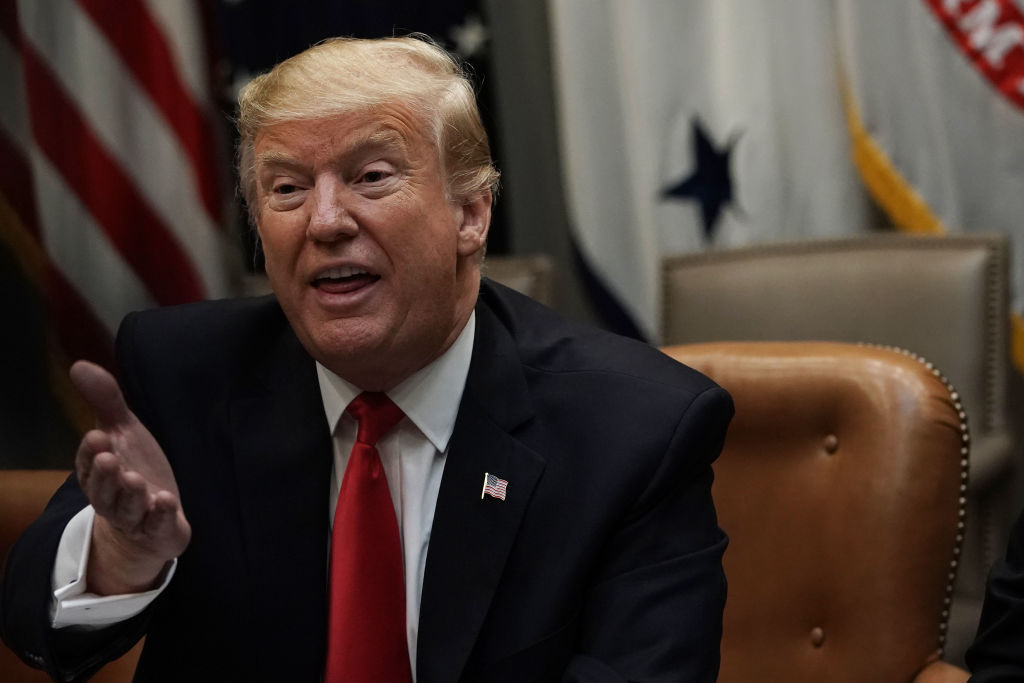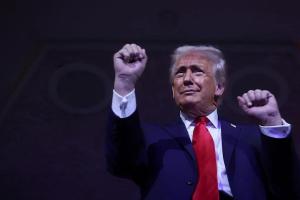Trump caved, Trump caved, Trump caved. That’s the incantation, and if you repeat it long enough, the words begin to feel right. The president’s capitulation was ‘total’, say the media heads. He has been ‘humiliated.’ Nancy Pelosi ‘took him to the cleaners’ and ‘kicked his behind.’ This, apparently, qualifies as high-level political analysis.
The trouble is, it isn’t true. Trump didn’t cave. He backed off. He may have folded, temporarily, but what journalists and many Democrats struggle to understand is that elections are not won and lost in news cycles. The irony is that many of Trump’s opponents accuse him of having ADD, of being a Twitter addict who watches too much 24-hour rolling news. But they all seem far too eager to say that his presidency is sunk based on one day of apparently bad headlines.
He doesn’t know what he’s doing, they say. There was never any ‘strategy’ for winning the shutdown, the White House insiders tell us. But guess what? There never has been any ‘strategy’ behind Trump’s politics, yet he still became the most powerful man in the world. His presidency, like his candidacy, is improvisational and instinctive. He just riffs and talks about deals. The funny part is that it doesn’t work all that badly, at least not as terribly as politics-as-usual on the Hill.
Trump did not ‘totally’ reverse from his position. He has announced a temporary end to the shutdown. Has he irritated his fans in doing so? Yes. Yet, as liberal pundits have been trying to tell us for years, Trump’s base is not enough to win re-election. What Trump may have done, in fact, is ‘triangulate’ – to use a word once-favored by Washington know-alls – between his ardent supporters and the people who have concerns about immigration but don’t think the government should be closed over those concerns – i.e., the majority of the voting population.
By agreeing to pause the shutdown, Trump has shown he does care about federal workers – even if some of his more affluent fans think almost all those jobs should be culled anyway – as well as border security. As many others have pointed out, immigration is not just a fringe issue that bothers the radical right. It is, for many people in developed countries across the world, the number one most worrying problem of our time.
The polls suggest Americans didn’t approve of Trump’s handling of the shutdown. But, as the Wall Street Journal’s Michael Bender showed, his approval rating is around what it was December: 43 percent. Congress’s is still around 20 percent, and, for all the fawning over Nancy Pelosi in recent days, it might be premature to start thinking of her as a popular figure: about 35 percent of the American public have a favorable opinion of her, according to Real Clear Politics. She’s a tough negotiator, no doubt, and she knows how to operate on Capitol Hill. But the American public don’t like Capitol Hill and their worries about immigration – unlike their concerns about the shutdown – aren’t going to evaporate any time soon.
The Democrats are excited because they believe that, with their control of the House, Trump can’t get anything done. It’s far too soon to be so confident: the new Congress has been going for less than a month. Trump is no intellectual, but he isn’t always the fool he often pretends to be. His political instincts are shrewd, which is why he pays grudging respect to ‘Nancy.’ He understands that sometimes, to get a good deal in the end, it can be wise to reculer pour mieux avancer.
‘The art of the deal is not the art of governing,’ said Sen. Doug Jones on MSNBC last night. Maybe, Doug, but the art of the soundbite is not the art of winning elections, either. Trump has shown, time and again, that as a political operator he should not be underestimated. Yet his opponents keep underestimating him – more fool them.

























